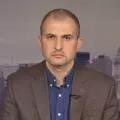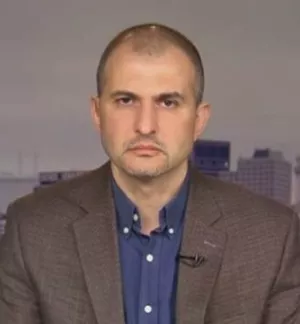As of Friday afternoon, Russian President Vladimir Putin was yet to directly weigh in on Israel’s overnight attacks on military, nuclear and other targets in Iran, though his spokesman Dmitry Peskov did speak out. In his statement, Peskov avoided blaming Israel explicitly, saying Russia is concerned and condemns “the sharp escalation” of tensions between Isael and Iran. As for Peskov’s boss and Russia’s ultimate decision-maker, Putin was to take a call from Benjamin Netanyahu on the strikes, according to Peskov. Putin’s deputy in the Russian Security Council, Dmitry Medvedev, invoked the threat of a nuclear war in his response to the attacks. "I am often accused of whipping up nuclear hysteria. Take that! When I write about a nuclear conflict, it's not just like that. It's real,” he wrote in his Telegram channel.
In contrast to Peskov, who condemned the escalation, Russia’s Foreign Ministry also weighed in, condemning Israel’s overnight attacks on Iran as “unacceptable.” The statement was echoed by Konstantin Kosachev, who said “there was “no excuse for Israeli actions.” Of pro-Kremlin commentators whose views on the attacks we managed to find, most criticized Israel, while some expressed concern about the disintegration of Iran, which only 11% of Russians view as an ally despite the newly concluded Russian-Iranian Comprehensive Strategic Partnership treaty and Teheran’s supply of attack drones for Russia’s war against Ukraine.
When it comes to Russian authorities’ practical public steps, they have mostly focused on ensuring the safety of Russian citizens. Russia’s Embassies in Iran and Israel advised Russian citizens to avoid traveling to these countries. In addition, Russia’s federal aviation service (Rosaviatsiya) banned Russian airlines from flying to or over Israel and Iran. Meanwhile, Brent crude surged as much as 13%1 while the Moscow Exchange (MOEX) Russia Index and the RTS were both up 0.33% in the wake of the attacks.
See below for reactions to the attacks from Russian officials and commentators, arranged in alphabetical order below.
Georgy Bovt, pro-Kremlin commentator, wrote on Telegram:
- “Moscow believes that there is no military solution to the conflict between Israel and Iran, namely the problem of Iran’s nuclear program. But apparently there are other military conflicts.” (Telegram, 06.13.25)
- When commenting on reports that Israeli drones had been smuggled into Iran for the attacks: “Symmetrical with [Ukraine’s drone operation “Web,” don’t you think? Was it developed in the same expert centers?” (Telegram, 06.13.25)
- Also, "It is interesting that the Russian Foreign Ministry refers to West Jerusalem as the capital of Israel” in its statement on the Israeli attack. (Telegram, 06.13.25)
Foreign Ministry of Russia said in a statement:
- "We are extremely concerned about the dangerous escalation of tensions in the Middle East and strongly condemn the military operation of the state of Israel launched in violation of the U.N. Charter and international law in the small hours of June 13.
- "The unprovoked military strikes on a sovereign U.N. member state, its citizens, sleeping peaceful cities and nuclear energy facilities are absolutely unacceptable. The international community cannot afford to be indifferent to such atrocities that destroy peace and damage regional and international security.
-
"The ongoing events are even more cynical as the Israeli attacks were mounted in the midst of a session of the IAEA Board of Governors and on the eve of another round of indirect contacts between representatives of Iran and the United States. Thus, the hard-won multilateral efforts to reduce confrontation and find solutions that eliminate any suspicions and prejudices regarding Iran's peaceful nuclear energy were undermined and set back.
"Obviously, West Jerusalem has made a conscious choice in favor of further escalation of tensions and raising the stakes. “
- “We call on the parties to exercise restraint in order to prevent further escalation of tensions and an all-out war in the region.” (Interfax, quoting Russian Foreign Ministry’s Telegram channel, 06.13.25)
Alexander Kargin, an expert on Israel and the Middle East, said: “Iran could theoretically close the Strait of Hormuz, through which 40% of the world’s oil traffic passes, but in this case, it would antagonize China, which is one of the largest importers of oil, and China would be very unhappy about this. Iran could also theoretically strike American bases.” (Gazeta.ru, 06.13.25)
Konstantin Kosachev, Federation Council deputy speaker:
- "There is no excuse for Israeli actions from either a legal, political, military, or moral point of view," Kosachev said on Telegram. "The saddest thing is that this is not the end of the story. An Iranian response to Israel is inevitable, and the vicious circle of escalation is spiraling upwards."
- “This is also a strike on nuclear safety, considering that what happens to radiation levels where the attacked sites have been destroyed remains to be seen," he said.
- Besides, this is "a strike on the prospect of settling disagreements over the Iranian nuclear program at negotiations. Naturally, there will be no sixth round in Oman on June 15," Kosachev said.
- This is "a strike on the IAEA which added fuel to the fire by its recent anti-Iranian resolution" and on "explosive (in)stability in the region, where Muslim radicals are only becoming more radicalized towards Israel," he said.
- "The only hope for avoiding an all-out war, albeit illusory, is a consolidated condemnation of this operation by the international community," Kosachev said. (Interfax, quoting Kosachev’s Telegram channel, 06.13.25)
Pro-war Russian journalist Yury Kotyonok wrote on Telegram:
- “To accept what has happened means [for Iranians] is to subscribe to capitulation. Most likely, at the cost of the fall of the ruling regime. ... The situation for Iran is extremely bad and difficult. The country, which was perceived as an outpost against Israeli aggression and Western expansion in the region, is simply being knocked off the geopolitical map. If this continues, Iran’s statehood can be written off.” (Telegram, 06.13.25)
- “And again, strange metamorphoses with [Iran’s] leaky air defense, unhindered penetration of Israeli agents and the inability to protect systemically important individuals.” (Telegram, 06.13.25)
Grigory Lukyanov, Russian Academy of Sciences (RAS) Institute of Oriental Studies:
- "Israel expects any response of Iran, if repelled, to weaken the international standing of Tehran, to destabilize the domestic situation and to cause internal tensions. The main goal of the military and political leadership of Israel is to topple the Iranian administration," he said. (Interfax, 06.13.25)
Adlan Margoev, Research Fellow, Institute of International Studies, MGIMO, said: “The escalation is happening at a very crucial moment, since Iranian-American talks on the nuclear issue have been going on since April, and their next round was scheduled for this Sunday in Oman. ... I would prefer not to make predictions about what decisions will be made in Tehran. But it still seems to me that it is not in the interests of the Iranian side to shock the Americans and draw them into escalation. Therefore, I would rather expect a tough response [by Iran] on Israeli facilities and a moderate response on American facilities.” (Kommersant.ru, 06.13.25)
Sergei Markov, Pro-Kremlin commentator, wrote on Telegram:
“Forecast:
1. The missile exchanges will continue for several weeks.
2. After that, a truce will be concluded.
3. Iran will agree to a nuclear deal based on the U.S. model. The outlines of the nuclear deal will be proposed by the U.S., Russia and Saudi Arabia. Under the terms of the deal, Iran will refuse to enrich uranium. In exchange, the U.S. and Europe will lift sanctions on Iran.
4. Enriched nuclear fuel for Iran will be produced and stored in Russia. In case the West refuses the nuclear deal, as it has already done.
5. Preparations will begin to overthrow the mullahs in Iran. The U.S., Europe, Israel and Arab countries will participate.
6. The coup d'etat in Iran will be carried out along the lines of support for the liberals in power and along the lines of support for Iranian opponents of the regime from abroad.
7. There will be no land invasion of Iran. There will be internal unrest and fighting.
8. Iran will be partitioned [divided].” (Telegram, 06.13.25)
Dmitry Medvedev, deputy chairman of the Russian Security Council, wrote on Telegram: "I am often accused of whipping up nuclear hysteria. Take that! When I write about a nuclear conflict, it's not just like that. It's real. And fast. Nobody needs that!" (Telegram, 06.13.25)
Vladimir Pastukhov, exiled Russian commentator, wrote on Telegram:
“The Israeli strike on Iran appears to be an extremely risky, but rational and, apparently, inevitable action under the current circumstances.” (Telegram, 06.13.25)
Dmitry Peskov, Kremlin spokesperson, said President Vladimir Putin was receiving “real-time updates” on the situation after the Israel Defense Forces carried out large-scale attacks on “dozens” of sites across Iran, including its nuclear program, and reportedly killed several top military officials. “Russia is concerned and condemns the sharp escalation of tensions," Peskov said. "President Putin is being briefed on the events unfolding in the region by the Russian Defense Ministry, the Foreign Intelligence Service, and the Foreign Ministry," Peskov said. (The Moscow Times, TASS, Interfax, 06.13.25)
Vladimir Sazhin, research fellow at the Russian Academy of Sciences (RAS) Institute of Oriental Studies:
- "From the Israeli point of view, the strike was necessary in order to solve the Iranian nuclear problem. Yet I believe that the Israelis have not taken certain things into account. Iran has about 30 sites significant for the nuclear program (this is practically official information), The most important are located in Natanz and Fordo, where uranium is actually enriched," he
- "The problem for Israel in this situation is that no strikes will obliterate the Iranian nuclear infrastructure. Rather, strikes on Iran will galvanize Tehran into doing more to create, if not a nuclear bomb itself, than a dirty bomb as quickly as possible. In this regard, Netanyahu has calculated far from everything," he said. (Interfax, 06.13.25)
Leonid Slutsky, State Duma Foreign Affairs Committee Chairman: “The Israeli strikes on Iran are fraught with a major escalation. The Iranian Armed Forces General Staff said that Israel has crossed every existent red line and Tehran has no limits on its response. The red flag of revenge has been raised over the Jamkaran Mosque," Slutsky told the press on Friday. "No doubt, all of that causes profound concern about possible consequences, including those on the global level," he said. "A new outbreak of tensions is extremely dangerous both for the region and for the entire world. As reported, the Israeli attack targeted both military and civilian infrastructure and nuclear facilities. This is whole new level of escalation," Slutsky said. He said he believed that "the international community should take the utmost effort towards stopping the violence and bringing the sides back to the diplomatic settlement process or else an all-out war between Iran and Israel may set fire to the entire Middle East with a prospect of evolving into a WWII." (Interfax, 06.13.25)
Mikhail Zvinchuk’s pro-war Rybar Telegram channel wrote:
- “So far Scenario #2 is being implemented in the Middle East (the IDF attacks Iran, and the U.S. provides protection from possible launches from Iran) ... For the sake of objectivity, Washington and the Pentagon are not in the right situation to fully engage in a major war.” (Telegram, 06.13.25)
- “If we move away from the public side ... we can look at the deeper side: the human and reputational losses are being suffered by representatives of Iranian technocrats and reformists.” (Telegram, 06.13.25)
Footnotes
- Bloomberg said the oil increases marked the largest intraday gain since the days following Russia’s full-scale invasion of Ukraine in 2022.
This item is part of Russia Matters’ “Clues from Russian Views” series, in which we share what newsmakers in/from Russia are saying on Russia-related issues that impact key U.S. national interests so that RM readers can glean clues about their thinking. Photo by Iranian Red Crescent Society via AP.
Saradzhyan, Simon and Angelina Flood. “Russians React to Israeli Strikes on Iran: Fear of Nuclear War, Partition of Iran.” Russia Matters, June 13, 2025
The full text of this publication is available via Russia Matters.




